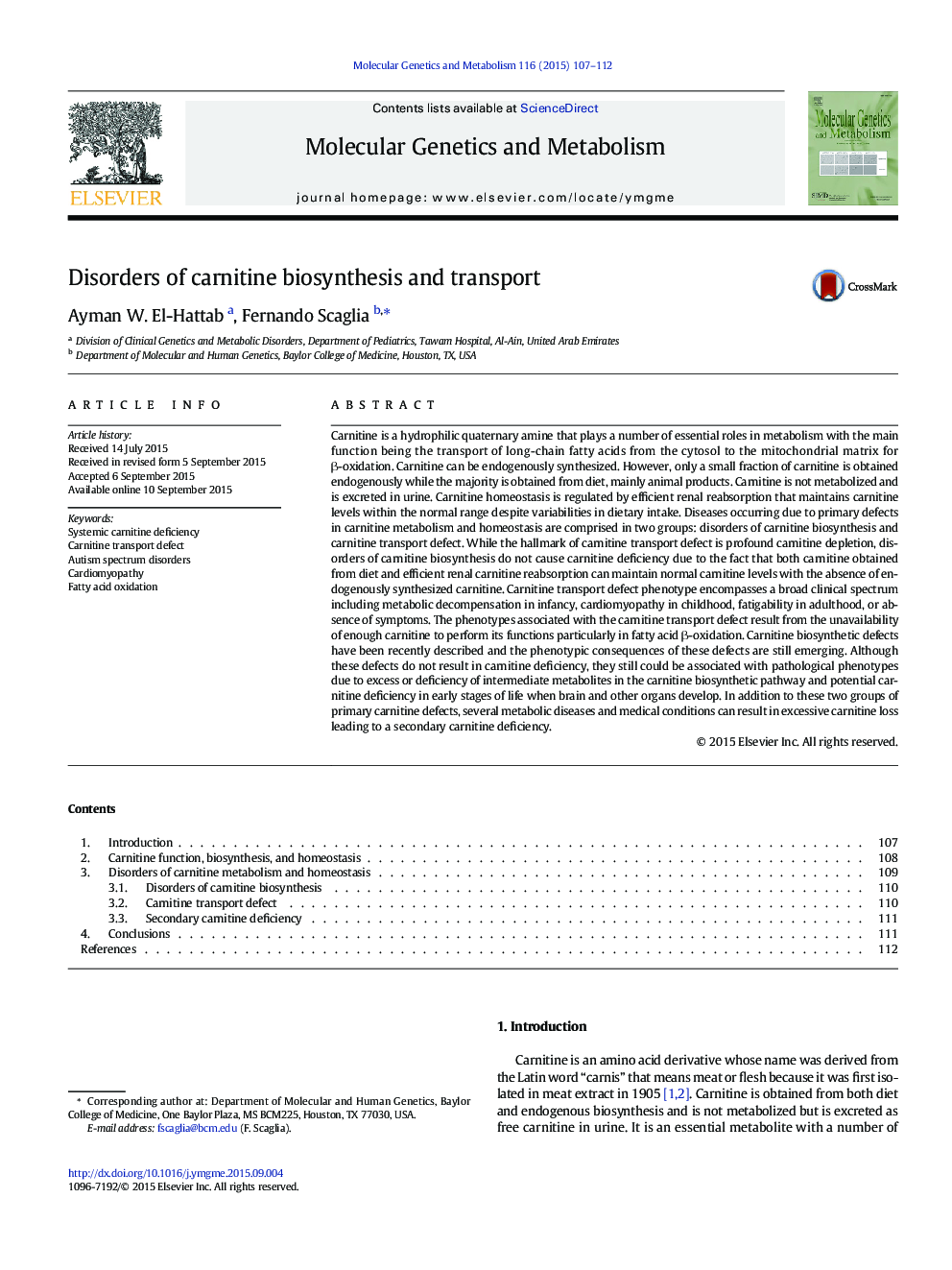| کد مقاله | کد نشریه | سال انتشار | مقاله انگلیسی | نسخه تمام متن |
|---|---|---|---|---|
| 1998261 | 1065774 | 2015 | 6 صفحه PDF | دانلود رایگان |
• Carnitine transports long-chain fatty acids into the mitochondria for β-oxidation.
• It is obtained from diet, but small fraction is synthesized endogenously.
• Its homeostasis depends on dietary absorption, biosynthesis, and renal absorption.
• In carnitine transport defect profound carnitine depletion occurs.
• Carnitine biosynthesis disorders do not cause carnitine deficiency.
• Carnitine biosynthesis disorders can be a risk factor for autism.
• Conditions causing excessive carnitine loss lead to secondary carnitine deficiency.
Carnitine is a hydrophilic quaternary amine that plays a number of essential roles in metabolism with the main function being the transport of long-chain fatty acids from the cytosol to the mitochondrial matrix for β-oxidation. Carnitine can be endogenously synthesized. However, only a small fraction of carnitine is obtained endogenously while the majority is obtained from diet, mainly animal products. Carnitine is not metabolized and is excreted in urine. Carnitine homeostasis is regulated by efficient renal reabsorption that maintains carnitine levels within the normal range despite variabilities in dietary intake. Diseases occurring due to primary defects in carnitine metabolism and homeostasis are comprised in two groups: disorders of carnitine biosynthesis and carnitine transport defect. While the hallmark of carnitine transport defect is profound carnitine depletion, disorders of carnitine biosynthesis do not cause carnitine deficiency due to the fact that both carnitine obtained from diet and efficient renal carnitine reabsorption can maintain normal carnitine levels with the absence of endogenously synthesized carnitine. Carnitine transport defect phenotype encompasses a broad clinical spectrum including metabolic decompensation in infancy, cardiomyopathy in childhood, fatigability in adulthood, or absence of symptoms. The phenotypes associated with the carnitine transport defect result from the unavailability of enough carnitine to perform its functions particularly in fatty acid β-oxidation. Carnitine biosynthetic defects have been recently described and the phenotypic consequences of these defects are still emerging. Although these defects do not result in carnitine deficiency, they still could be associated with pathological phenotypes due to excess or deficiency of intermediate metabolites in the carnitine biosynthetic pathway and potential carnitine deficiency in early stages of life when brain and other organs develop. In addition to these two groups of primary carnitine defects, several metabolic diseases and medical conditions can result in excessive carnitine loss leading to a secondary carnitine deficiency.
Journal: Molecular Genetics and Metabolism - Volume 116, Issue 3, November 2015, Pages 107–112
